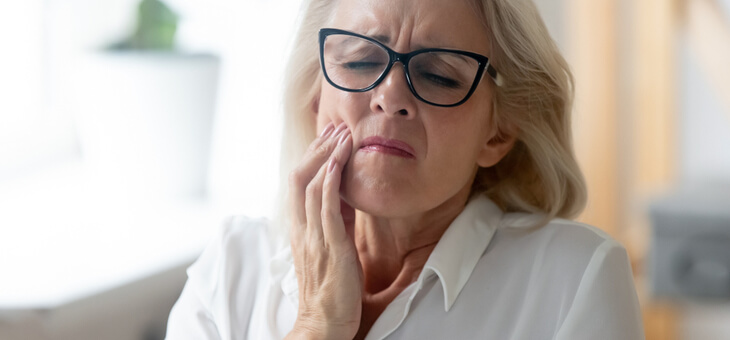An Australian trial has successfully highlighted alternatives to dangerous opioids in treating back pain.
The randomised trial involving 4500 people across four NSW hospitals saw a 12 per cent decrease in opioid use by people reporting acute back pain.
The global ‘opioid epidemic’ has led the Royal College of General Practitioners to issue 11 key principles for prescribing ‘drugs of dependence’.
Under regulations introduced last year, opioids are recommended only for acute pain, cancer pain and palliative care. A Department of Health spokesperson told ABC News the changes were aimed at “increasing patient safety and stopping the unnecessary loss of life due to overdose”.
In 2006, deaths involving opioids occurred in Australia at a rate of 22 people in every million, but by 2016, the figure was 53 people in every million. In the US, more than 140 people per million died of an opioid-related overdose every year.
“Every year thousands of Australians are unnecessarily being prescribed opioid painkillers which can cause addiction, overdose and in some cases even death,” the study’s lead researcher, Gustavo Machado, told The New Daily.
He said patients arriving at emergency departments often received a “highly addictive painkiller”.
“It’s meant to be just a short-term fix, but in reality, a month later a third of patients are still taking these pills.
“Emergency departments are incredibly busy places and there is a huge pressure on clinicians to treat people as quickly as possible.
“Unfortunately, there is no easy fix for acute back pain, but providing opioids has a lot of downsides.”
Doctors participating in the trial provided alternatives to opioids including “other medicines and heat wraps”.
The trial demonstrated “that there is a safer way to treat acute back pain that can easily be adopted by hospitals across the country,” Dr Machado said.
“With back pain often being a leading reason people visit emergency departments, this new strategy could result in millions of scripts being handed out each year and help tackle the global opioid epidemic.”
The fall in opioid use did not result in increased pain levels among patients, the trial concluded.
Read more: Alternative solutions for back pain
The UK’s National Institute for Health and Care (Nice) excellence says even paracetamol, aspirin and ibuprofen “do little to help people suffering from chronic primary pain”, chemistryworld.com reports.
“The organisation, which publishes clinical practice guidelines for the National Health Service in England and Wales, instead found evidence that shows other interventions to be effective, including exercise, psychological therapy, antidepressants and acupuncture.”
Chronic primary pain, defined as pain persisting for longer than three months, affects up to a half of UK citizens.
Nice says doctors should stop prescribing painkillers.
“Their review of 33 clinical studies found no or little evidence that painkillers benefit patients …
“Other drugs that have been used to treat chronic pain that Nice found to be inadequate treatment options include tranquilising benzodiazepines, anti-inflammatory medications, anti-epileptic gabapentinoids, local anaesthetics, ketamine and corticosteroids.”
Nice said more research should be focused on pain management programs and psychological therapy.
Read more: How to fly comfortably if you have back pain
Under changes made in Australia in June 2020, opioids are now prescribed in smaller quantities and without repeat prescriptions.
“Patients with ongoing pain are now encouraged to seek help from their GP, see a pain specialist and consider other therapies,” ABC News reports.
In January, the Therapeutic Goods Authority (TGA) began a campaign to increase consumer understanding of the dangers of long-term use of opioid medicines.
In 2018, the federal government informed 4800 doctors they were among the top 20 per cent of opioid prescribers and could be over-prescribing.
“We don’t want to end up in the place that the United States is in where opioids are a national crisis,” health minister Greg Hunt said.
Canterbury Hospital director of medical services Eileen Rogan, a senior emergency physician, said physicians and nurses “embraced this trial because they could see the positive results almost immediately”.
“It’s clear there is a better model of care to help people with back pain, and one that does not rely so heavily on opioid painkillers,” she said.
During the four-month trial at the Canterbury Hospital opioid use fell from 61 per cent of patients being given prescriptions to 37 per cent.
Read more: Common causes of back pain
Researchers at the University of California San Diego claim to have developed a “gene therapy” for chronic pain that could offer a “safer, non-addictive alternative to opioids”.
It works by temporarily repressing a gene involved in sensing pain.
The researchers reported their findings in a paper published last week in Science Translational Medicine.
“The gene therapy could be used to treat a broad range of chronic pain conditions, from lower back pain to rare neuropathic pain disorders – conditions for which opioid painkillers are the current standard of care,” the university reported.
“What we have right now does not work,” said first author Ana Moreno. “There’s a desperate need for a treatment that’s effective, long-lasting and non-addictive.”
Opioids can make people more sensitive to pain over time, leading them to rely on increasingly higher doses.
Ms Moreno instigated the research after reading a paper about a genetic mutation that causes humans to feel no pain. “By targeting this gene, we could alter the pain phenotype (an individual’s observable traits),” she said.
“What’s also cool is that this gene is only involved in pain. There aren’t any severe side effects observed with this mutation.”
Have you been prescribed opioid medications? Have you been assigned alternatives to opioids to deal with pain?
If you enjoy our content, don’t keep it to yourself. Share our free eNews with your friends and encourage them to sign up.

